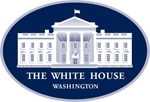
The recommendations on the major issues of wages and health insurance contributions fall much closer to the terms proposed by the Coalition than those proposed by New Jersey Transit, although the Board did backload its wage recommendations to accommodate the railroad’s budgetary concerns.
The PEB found that the Coalition proposals were appropriately based on settlements in the commuter industry, while the company’s unprecedented reliance on a state worker concessionary contract was not persuasive.
Coalition spokespersons said, “The Presidential Emergency Board, composed of three veteran, distinguished neutrals, has proposed terms that represent a reasonable compromise approach to settlement. We sincerely hope that New Jersey Transit will now take this opportunity to bring this protracted dispute to an end.”
The board’s recommendations are non-binding and the parties now have 120 days to reach agreement based on the recommendations.
Summary of PEB 248’s Recommendations
The Board recommended wage increases totaling 18.4 percent in compounded wage increases over 6.5 year or 2.6 percent per year. When increases for health insurance factored in, the recommendations totaled 17.7 percent over the term or 2.5 percent a year.
“Over the years wage settlements at NJT have closely followed the general trend of wage changes at the other large commuter railroads in the region, including LIRR, Metro-North, SEPTA and MBTA. …The Board’s recommendations are consistent with the average annual uncompounded wage increases at the four other large commuter rail carriers. The average annual wage increases of all four of these commuter railroads is 2.6 percent, the same nominal wage rate increase recommended by the Board.”
Although the board recommended an increase in health insurance contributions and an increase in co-payments, the PEB rejected NJT’s proposal for a new inferior insurance plan and their proposal to make employees responsible for 50 percent of excise taxes incurred as a result of the Affordable Care Act.
“The Carrier’s proposal falls outside the current health insurance contribution trends in the industry. Our recommendation would move the employees’ contributions from 1.8 percent to 2.5 percent, which we do not consider an unwarranted increase.”
The PEB rejected NJT’s proposal to eliminate employee ridership passes. The Board also rejected NJT’s proposal to reduce contributions to new hire 401 (a) contributions and also recommended provisions for conductor certification pay.
What Happens Next
The Coalition and NJT have until November 12 to negotiate a voluntary agreement. If no agreement is reached by that time, either side or the Governor can invoke a second Presidential Emergency Board. That PEB will select the most reasonable final offer. Its recommendation again will be non-binding. The parties will then have until March 11, 2016, to reach a voluntary agreement. If no agreement is reached, self-help would then be possible.
The Coalition believes PEB 248’s recommendations provide a fair compromise and the basis of a voluntary agreement. New Jersey Transit is still evaluating the recommendations and deciding on its next steps. No negotiations have yet been scheduled.
Click here to read PEB 248’s report.
Related News
- Colorado Transit Worker Safety Bill (House Bill 25-1290)
- Chairman Pauli Announces Retirement, SMART-TD celebrates his career
- New Mexico Local 1687 sets new precedent with Red Apple Transit
- Tentative Agreement Reached With TransitAmerica Services (TASI)
- New CSX conductor improvises to save a life
- SMART News: Protecting Railroad Retirees’ Future
- More Than a Story: SMART-TD’s Women’s History Month Highlights Legacies in the Making
- Tentative Agreement Reached in Boston
- Assembly, No. 1672
- Historic short-line agreement proves workers are stronger with SMART-TD at their side